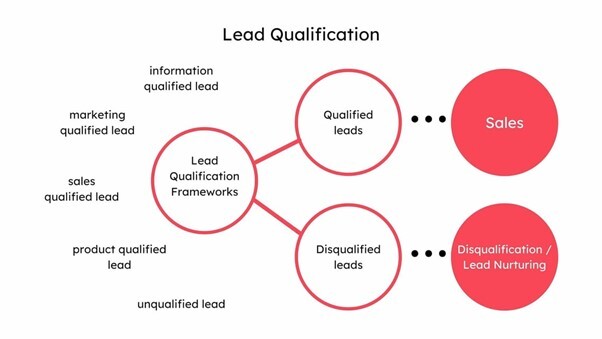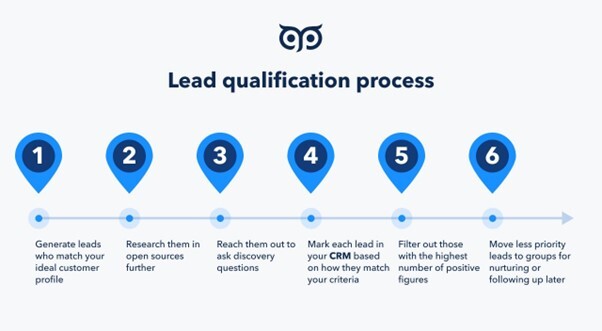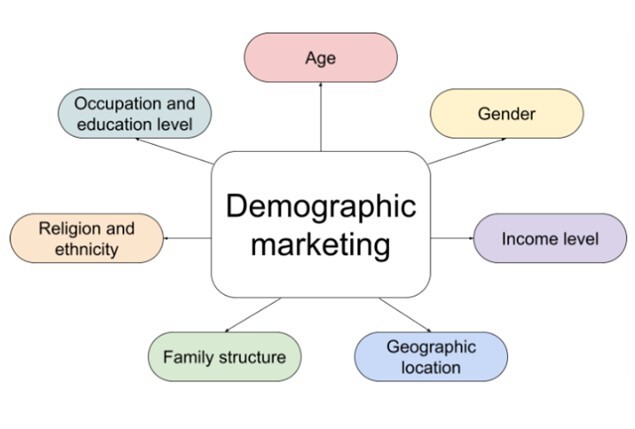Lead qualification is the secret sauce in a winning sales strategy, where identifying high-converting leads is the key to saving time and resources. Using BANT methodology, your sales team can swiftly assess a lead's budget, authority, needs, and timeline, ensuring a targeted approach.
This blog delves into the vital aspects of considering the customer's needs, budget, authority, and timeline during lead qualification. Uncover how this process empowers your sales team to comprehend customer requirements, devise effective strategies, and focus on leads with the highest conversion potential—ultimately driving increased sales and a robust bottom line.
The Importance of Lead Qualification
Lead qualification is an essential part of any successful SEO strategy. Understanding the needs and interests of potential clients ensures that your SEO efforts are well-targeted and effective. By accurately qualifying leads, you can save valuable time and resources by focusing on the most promising prospects. Lead qualification at different stages of the sales funnel consisting of top-of-funnel sales leads, middle-of-funnel sales leads, and bottom-of-funnel sales leads in B2B lead generation is an essential step in streamlining your sales process.
Lead qualification also helps in determining whether the opportunity is for cross-selling or upselling to existing clients. Finally, it allows you to use lead scoring and other techniques to prioritize leads and maximize the return on your SEO investment. By investing time and effort in lead qualification, you can maximize the effectiveness of your SEO efforts and overall return on investment.
Lead Qualification at Different Stages of the Sales Funnel
Lead qualification at different stages of the sales funnel, including top-of-funnel sales leads, middle-of-funnel sales leads, and bottom-of-funnel sales leads in B2B lead generation, is an essential step in streamlining your sales process. By qualifying leads at the top of the funnel, you can create targeted campaigns for the most promising leads, and at the bottom, you can focus on following up with those who need more time before closing. Proper lead qualification enables you to create more efficient sales funnels, reducing time and resources spent on unlikely-to-convert leads.
You can ensure that you provide the right sales materials and high-quality content to the right people. By mastering the lead qualification process, you can boost your sales and get the most out of your marketing efforts.
Top of Funnel Leads and Their Qualification Criteria
Top-of-funnel sales leads are those that have just entered the funnel, and the goal of qualification is to determine if they are ready to move on to the next stage in the process. Qualification criteria can include things like awareness of the company, budget, the size of the company, and the need for the product or service.
Middle of Funnel Leads and Their Qualification Criteria
Middle-of-funnel leads need to meet certain criteria to qualify for further consideration. These criteria can include the lead's company size, industry, budget, and needs. Additionally, lead qualification helps ensure you are focusing on the best leads and not wasting resources on leads that may never convert.
Bottom of Funnel Leads and Their Qualification Criteria
Lead qualification is an essential part of the sales funnel, helping identify bottom-of-funnel leads likely to convert into customers and ensuring efficient resource use. The key to successful lead qualification is to have clear criteria for leads at the bottom of the funnel, considering factors such as the lead’s position in the buying cycle, budgetary constraints, and other factors influencing conversion.
By properly qualifying leads, companies can focus their efforts on those most likely to convert and maximize their return on investment. Clear lead qualification criteria can also help streamline the sales funnel and ensure efficient resource allocation.
Key Elements of Lead Qualification
Lead qualification is a crucial step in the lead generation process for successful marketing campaigns. To target the right prospects, consider key elements when qualifying leads.

Firstly, understand the client's needs and determine the product or service that best meets those needs. Secondly, grasp the client's budget and the resources available for a purchase. Finally, understand the client's timeline and how soon they need the product or service. By evaluating these key elements, determine which leads are the best fit for your product or service and develop an effective lead qualification process.

Establishing Clear Lead Qualification Criteria and Parameters
The establishment of clear lead qualification criteria and parameters is a key step in ensuring SEO success. By setting up criteria that define a lead, target efforts more effectively. Criteria such as job title, industry, location, and budget further narrow down the leads targeted, helping to better identify and convert leads, saving time and money.

Evaluating Lead Demographics, Firmographics, Budget, Decision-Making Authority
When evaluating leads, consider demographics, firmographics, budget, decision-making authority, and level of interest. Demographics provide insight into target clients, allowing for more effective strategies. Firmographics, like company size and industry, help determine which leads are more likely interested. Knowing a lead's budget helps structure pricing and offer the most appropriate product or service. Assessing decision-making authority ensures engagement with the right person, while evaluating the level of interest guides effective lead engagement and nurturing.

Defining Ideal Customer Profiles (ICPs) for Targeted Qualification
After identifying Ideal Customer Profiles (ICPs) and buyer personas, use them to qualify leads through methods such as interviews, surveys, or focus groups. Lead qualification uncovers potential client needs and motivations, allowing for more targeted and effective sales techniques. Focusing on the right leads maximizes sales, increases conversion rates, and results in more closed deals.
Lead Scoring and Lead Qualification
Lead scoring and lead qualification are essential components of any successful SEO strategy. Lead scoring assigns numerical values to leads based on potential value and engagement, while lead qualification identifies and maximizes conversion opportunities. Combining these processes reduces SEO campaign costs and enhances overall ROI. Effective lead qualification helps prioritize leads for conversion, significantly impacting lead qualification success.
Lead scoring is valuable for prioritizing leads and is often integrated with lead qualification. Assigning numerical values based on potential and engagement helps identify promising leads. Integrating lead scoring with lead qualification enables the focus on leads most likely to convert, maximizing ROI and improving overall lead qualification efficiency.
Types of Lead Scoring Methodologies
Lead scoring methodologies include explicit, implicit, and predictive approaches. Explicit scoring uses information provided by leads, like job title and company size. Implicit scoring is based on lead behavior, such as website visits and interactions. Predictive scoring combines explicit and implicit data with predictive analytics, determining the likelihood of conversion. Effective lead scoring, tailored to specific needs, significantly impacts lead qualification.
Assigning Scores Based on Criteria and Behavior Tracking
Lead scores effectively track and qualify leads based on predetermined criteria and behavior tracking. Assigning scores using demographics, past purchases, web visits, and behavior over time ensures accurate lead qualification. For instance, frequent website visits or interactions with social media profiles indicate high interest and warrant higher lead scores. By tracking and scoring leads, identify those worth pursuing and optimize time and resources.
Best Practices for Effective Lead Qualification
Lead qualification is a crucial step in any successful sales process, ensuring resources focus on the most promising opportunities during client acquisition. By following these best practices, organizations can ensure their lead qualification process is effective and efficient.
1. Aligning with Marketing for Ideal Customer Profiles
Lead qualification is a critical step in B2B lead generation. Aligning with marketing to define and refine ideal customer profiles helps determine which leads are likely to convert. Understanding ideal customer characteristics, such as age, gender, location, and interests, aids in targeting content and outreach effectively. This alignment ensures a successful B2B content marketing strategy, reaching the right target audience. Knowing the ideal customer helps craft an effective SEO strategy, optimizing content and website for better search engine rankings.
2. Utilizing Data-Driven Insights for Lead Qualification
Data-driven insights and analytics are crucial for effective lead qualification in any successful SEO strategy. By leveraging data, make informed decisions for lead qualification. Analyze the lead qualification process, identify areas for improvement, and refine accordingly. Gain insights into leads most likely to convert, refine, and optimize the lead qualification process for the highest return on investment.
3. Conducting Effective Lead Qualification Conversations
Lead qualification conversations and discovery calls are key steps in the lead qualification process. Successful conversations help determine if a potential lead is a good fit for the product or service. Asking the right questions uncovers customer needs, saving time and resources by focusing efforts on qualified leads. Effective conversations identify strategies to convert qualified leads into paying customers, keeping ahead of the competition.
4. Streamlining Sales with Lead Qualification
Lead qualification is a crucial step in the sales process. Streamlining the process ensures sales reps focus on the right leads, optimizing the sales funnel for maximum success. Implementing an automated lead qualification system identifies promising leads quickly and assesses their fit for products or services. With automated lead qualification, sales reps spend less time on low-value leads, resulting in more successful sales.

5. Optimizing Lead Handoff Between Teams
Lead handoff between marketing and sales teams is crucial in the lead qualification process. Establish a process for quick and efficient transfer of qualified leads to sales. Use automation tools to identify leads ready for sales outreach and segment leads based on criteria like industry and location. Work closely with sales teams to ensure proper lead identification and provide necessary information for effective follow-up. Implement a feedback system for continuous improvement of the lead qualification process.
6. Implementing a Lead Qualification Framework
Implementing a lead qualification framework ensures consistent evaluation of leads. Evaluate leads in a standardized manner, allowing for accurate lead scoring and focus on leads most likely to convert. A reliable framework helps prioritize and allocate resources to leads with the highest conversion potential. Additionally, the framework provides insight into customer behavior, identifying areas for improvement and enhancing overall lead generation and conversion rates.
7. Defining Sales-Ready Leads and Establishing SLAs
Sales-ready leads are fully qualified and ready for pursuit by sales teams. To ensure consistently high-quality leads, establish service-level agreements (SLAs). SLAs define criteria that leads must meet to be considered sales-ready, such as specific job titles or industries. Establishing SLAs ensures consistently high-quality leads, improving the return on investment for lead qualification efforts.
Key Metrics to Track and Evaluate the Success of Lead Qualification Efforts
Key metrics are essential for tracking and ensuring the success of lead qualification efforts. Track metrics such as the number of leads generated, average lead quality, speed of B2B lead generation, and the number of leads converting to customers. Additionally, track the cost of lead generation to determine return on investment. By tracking these metrics, ensure that lead qualification efforts produce desired results.

Conclusion: Leveraging S2W Media for Lead Qualification Success
In conclusion, S2W Media can be a powerful tool for organizations looking to develop a successful lead qualification process. Leveraging S2W Media's analytics and insights provides a better understanding of the target audience and their needs, identifying the best leads for business. S2W Media offers valuable data insights on the effectiveness of the lead qualification process, enabling organizations to make changes and optimize over time. With S2W Media's suite of tools and services, organizations can build and maintain a successful lead qualification process, capturing quality leads and fostering business growth effectively.

%20(12.8%20x%207.2%20cm).png?width=390&height=195&name=LinkedIn%20Profile%20Picture%20(14.8%20x%2010.5%20cm)%20(12.8%20x%207.2%20cm).png)
